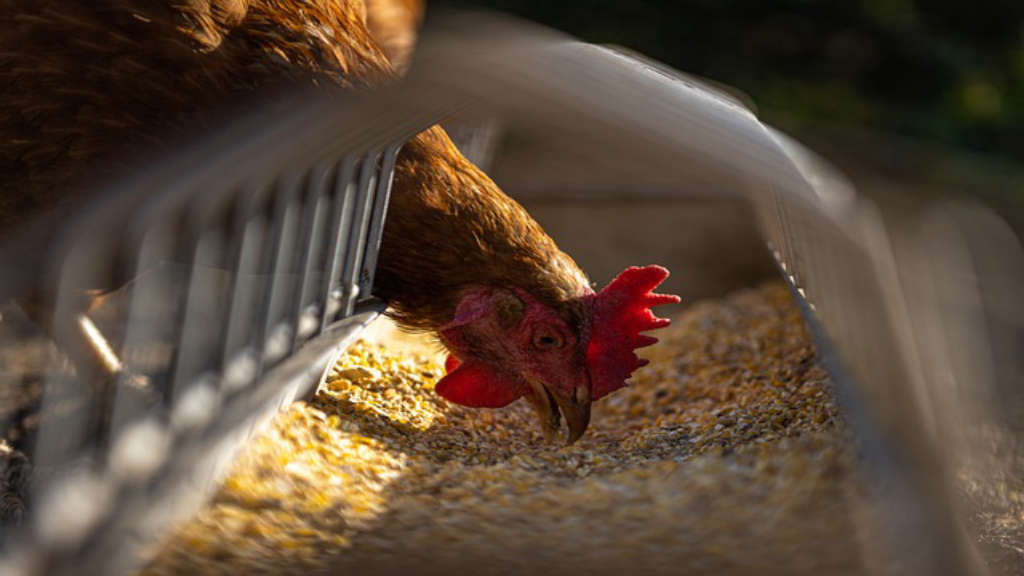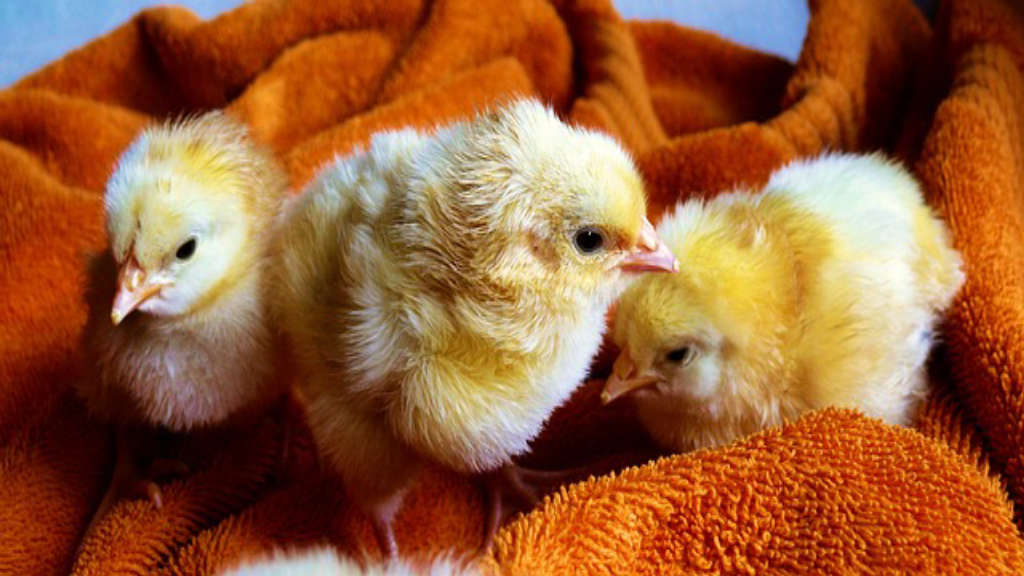The farming landscape is evolving rapidly, and one of the most promising trends on the horizon is the rise of pasture raised chicken. This method of poultry farming not only aligns with the growing demand for sustainable food sources but also promotes better animal welfare and improved poultry nutrition. By allowing chickens to roam freely on pasture, farmers can enhance the health of their flocks while producing meat that is rich in nutrients and flavor. In a time when many are concerned about the impact of conventional farming practices on our planet, embracing pasture raised chicken could be the key to a more sustainable future.
Main Points
- Benefits of sustainable farming practices.
- Enhancements to poultry health management.
- The role of pasture raised chicken in nutrition.
- Animal welfare considerations in modern farming.
- The future of food: embracing sustainability.

The Environmental Benefits of Pasture Raised Chicken: A Sustainable Approach
In recent years, the conversation around food production has shifted significantly towards sustainability. Among various farming practices, poultry farming has gained attention for its environmental implications. One of the standout methods is the raising of pasture-raised chickens. This approach not only supports animal welfare but also contributes positively to the environment. Let’s dive into the various benefits this sustainable practice offers.
1. Improved Soil Health
Pasture-raised chickens are often integrated into a holistic farming system. Their natural behaviors contribute to soil health in multiple ways:
- Nutrient Cycling: As chickens forage, they scratch and peck the ground, which helps break down organic matter. Their droppings enrich the soil, enhancing nutrient availability.
- Weed Control: Chickens naturally consume various weeds, reducing the need for chemical herbicides. This not only lessens environmental toxicity but also promotes a biodiversity-friendly ecosystem.
- Soil Aeration: Their movement across pastures enhances soil structure. Aerated soil allows for better water infiltration, reducing runoff and the risk of erosion.
2. Reduction of Greenhouse Gas Emissions
Traditional poultry farming methods often rely on confinement systems, which can lead to increased greenhouse gas emissions. In contrast, pasture-raised systems are more efficient:
- Chickens raised on pasture have a lower carbon footprint. They consume grass and insects, which can diminish the need for grain feed.
- The rotational grazing technique can effectively sequester carbon in the soil. When chickens are moved from one area to another, the grazed pasture has the opportunity to recover, enhancing carbon storage.
3. Biodiversity Promotion
Another striking feature of pasture-raised chicken farming is its ability to promote biodiversity:
- Habitat Creation: Chickens roaming in diverse pastures create habitats for various organisms, fostering an ecosystem rich in life.
- Polyculture Opportunities: Integrating poultry with other livestock or crops encourages a more resilient farming system. This polyculture not only benefits the chickens but also enhances overall farm productivity.
It’s clear that adopting a pasture-raised approach to poultry not only benefits the birds themselves but also contributes to a healthier planet. However, the transition to more sustainable practices often comes with challenges. Farmers must consider various aspects of poultry nutrition and poultry health management to ensure that both environmental goals and animal welfare standards are met. This often involves research and adaptation to local climates, ecosystem dynamics, and production needs, which can initially seem daunting.
In conclusion, raising chickens on pasture is not merely a trend. It offers genuine solutions to pressing environmental issues we face today. As consumers, our support for pasture-raised chicken can drive positive change, encouraging more farmers to adopt sustainable methods. The future is bright for those who prioritize both animal welfare and environmental health through this admirable practice.

Nutritional Advantages of Pasture Raised Chicken for Health-Conscious Consumers
In recent years, the shift towards more sustainable and ethical farming practices has gained momentum, particularly in the realm of poultry farming. Consumers increasingly seek out poultry nutrition that not only meets their dietary requirements but also aligns with their health values. As a result, pasture raised chicken has emerged as a popular choice for those who are health-conscious. But what exactly makes these birds so beneficial?
The Diet of Pasture Raised Chickens
One of the key aspects of pasture raised chicken is their diet. These chickens have access to fresh grass, insects, and seeds, which enriches their nutritional profile. The differences in diet can lead to poultry meat that is higher in beneficial omega-3 fatty acids compared to conventionally raised chickens. This not only enhances their flavor but also contributes to a healthier meal. Surprisingly, many consumers remain unaware of the significant impact that diet has on the overall poultry health management and nutrient composition of chicken meat.
Health Benefits of Higher Quality Protein
Pasture raised chicken is often touted as a superior source of protein. The meat from these chickens tends to have lower fat content and is richer in vitamins and minerals, including Vitamin E, which is well-known for its antioxidant properties. By choosing this type of chicken, consumers can enjoy a delicious meal without compromising their health objectives. Yet, some individuals still question whether these nutritional advantages are substantial enough to justify the higher price point, presenting a common conundrum for shoppers.
Environmental Impact and Ethical Considerations
Furthermore, the environmental considerations surrounding poultry farming are significant. Pasture raised systems tend to have a smaller carbon footprint and contribute to biodiversity enhancement. Chickens on pasture can help maintain healthy ecosystems by their natural foraging habits. While this aspect might seem less relevant to nutritional discussions, the interconnectedness of health, sustainability, and ethics cannot be overstated. Many consumers wrestle with the idea that their food choices can positively influence the world around them.
| Nutritional Component | Pasture Raised Chicken | Conventional Chicken |
|---|---|---|
| Omega-3 Fatty Acids | Higher | Lower |
| Vitamin E | Higher | Lower |
| Antioxidants | More | Less |
In conclusion, the nutritional advantages of pasture raised chicken present a compelling case for health-conscious consumers. From enhanced protein quality to environmental benefits, these chickens offer more than just a meal. While it is essential to weigh the cost against these myriad advantages, many find that the all-around benefits—both nutritional and ethical—make pasture raised chicken a worthy addition to their diets. However, the challenge lies in navigating the often-confusing marketplace of poultry products, ensuring that choices align with personal health goals and values.

Economic Impacts: How Pasture Raised Chicken Farming Supports Local Economies
The practice of pasture raised chicken farming is not just a trend; it represents a significant shift in how we think about poultry farming. As communities increasingly favor local products, farmers who adopt this method are finding themselves at the forefront of a growing economic movement. These farmers often see enhanced market opportunities, both for themselves and for their communities as a whole.
A Boost for Local Farmers
When farmers choose to raise chickens on pasture, they create a unique selling point. These birds often result in healthier meat and eggs, which can command higher prices. Customers are more curious about where their food comes from, and they are willing to pay a premium for locally sourced, sustainably raised products. This, in turn, makes poultry nutrition and health management even more critical. Farmers are not just tending to their livestock; they are also engaging in education about nutrition, which can influence purchasing behavior in the community.
Creating Jobs and Opportunities
Beyond immediate economic benefits, pasture raised chicken farming can create jobs that span various sectors. Local feed suppliers, veterinary services, and even transportation services see an uptick in business when farmers thrive. This interconnectedness means that healthy local economies emerge from robust poultry health management practices. Moreover, communities can experience a decrease in dependency on imported products, which often comes with environmental costs and reduced local spending. As families choose farm-fresh options, the economic benefits multiply.
Strengthening Community Ties
Interestingly, the rise of pasture raised chickens strengthens community bonds. Farmers often share best practices, collaborate on marketing strategies, and even set up cooperative models to sell their products. Farmers’ markets, which feature pasture-raised chicken, turn into community hubs. These markets encourage direct engagement between consumers and producers, fostering a sense of community pride. However, this vibrant atmosphere comes with challenges. Some local regulations may hinder the growth of small farms, creating a patchy landscape for those eager to participate in this movement.
The Bigger Picture
In the grand scheme of things, the economic impacts of pasture raised chicken farming reach far beyond the farm gate. It weaves a richer tapestry of community resilience, local job creation, and sustainable practices that truly matter. As consumers continue to demand better choices in their diets, the pasture-raised model serves as a beacon of hope. It’s a classic example of how a localized approach to poultry farming can yield tangible economic benefits.
In conclusion, pasture raised chicken farming isn’t simply about raising birds. It is about nurturing a healthy economy, one that thrives on local collaboration, robust nutrition, and management practices that benefit everyone involved. As this approach gains momentum, it illustrates the profound impacts that thoughtful agricultural practices can have on local communities.
Animal Welfare and Ethical Considerations in Pasture Raised Chicken Farming
The rise of pasture raised chicken farming has sparked significant conversations around animal welfare and ethical considerations. This farming method, often seen as a natural alternative to conventional poultry farming, encourages chickens to roam freely in a more humane environment. Yet, understanding the implications of such practices is crucial for consumers, farmers, and advocates of animal rights alike.
The Concept of Pasture Raised Farming
Pasture raised chicken farming allows chickens to spend their days outdoors, engaging in natural behaviors such as foraging and dust bathing. This method differs significantly from traditional poultry practices, where birds are often confined in cages or crowded spaces. As a result, pasture raised chickens typically exhibit enhanced poultry health management and improved overall well-being.
Benefits of Pasture Raised Chickens
- Improved Nutrition: Chickens raised on pasture can consume a varied diet, which leads to higher nutritional content in their eggs and meat.
- Enhanced Life Quality: The ability to roam and express natural behaviors supports mental health, reducing stress and aggression among flocks.
- Natural Disease Resistance: A diverse diet and a less stressful environment contribute to better immunity, thereby improving poultry nutrition and health management.
- Environmental Benefits: Pasture raised systems often use fewer resources and can contribute to healthier ecosystems through rotational grazing techniques.
The Ethical Dilemma
While pasture raised chicken farming presents various advantages, ethical concerns persist. For instance, the term “pasture raised” may be used loosely in marketing. This can lead to confusion about how much time chickens actually spend outside. Additionally, not all farms uphold the same standards of care. This inconsistency can create a misleading picture of what ethical poultry farming truly entails.
Key Considerations for Consumers
When choosing pasture raised chicken products, here are a few tips to ensure you’re making an informed decision:
- Research Brands: Investigate the farming practices of brands. Look for certifications or third-party audits that ensure adherence to animal welfare standards.
- Ask Questions: Don’t hesitate to inquire about the specifics of how chickens are raised, including their diet, space, and overall living conditions.
- Support Local Farms: Whenever possible, buy from local farms where you can visit and observe their practices directly.
Conclusion
The conversation surrounding animal welfare in pasture raised chicken farming is complex and multi-faceted. It invites consumers to reflect on their purchasing choices while highlighting the importance of transparency and integrity within the farming industry. As more people become aware of these issues, it is essential to foster discussions that prioritize both ethical farming practices and the health of our feathered friends.
Innovative Practices in Pasture Raised Chicken Farming: Leading the Way to Sustainability
In recent years, the concept of pasture raised chicken farming has gained significant attention from both consumers and farmers alike. This practice not only prioritizes animal welfare but also aligns closely with sustainability goals that many seek to achieve in today’s environmentally conscious world. However, the depth of innovation within this farming approach often leaves one wondering about its real implications and potential.
The Principles of Pasture Raising
At its core, pasture raising allows chickens to roam freely on grassy pastures, providing them space to engage in natural behaviors that are often restricted in conventional farming. This movement fosters healthier birds which, in turn, produce richer, more flavorful eggs and meat. However, this idyllic scenario raises questions. How do farmers balance the needs of chickens with the risks posed by predators? Is the practice sustainable in regions where land is scarce?
Innovative Approaches to Farming
One intriguing aspect of pasture raised chicken farming is the application of technology. Many farmers are now using mobile enclosures that allow chickens to access fresh pasture daily. This rotation prevents overgrazing and maintains soil health. Yet, while technology can enhance efficiency, does it inadvertently lead to a reliance that may compromise the essence of traditional practices? Moreover, what about the complications that arise when integrating these systems with existing farm structures?
Environmental Impact and Beyond
Beyond the immediate health benefits for the chickens, pasture raised practices play a vital role in enhancing biodiversity and improving soil quality. Chickens help to aerate the soil while their droppings serve as a nutrient boost. Nevertheless, some might argue that the land requirement necessary for such farming might detract from other ecological initiatives. Can we truly champion sustainability when the land use must be reconsidered? The answer seems nuanced and requires a deeper exploration of land management strategies.
As we delve deeper into innovation in pasture raised chicken farming, it becomes apparent that this approach does more than just challenge traditional methods; it prompts us to rethink consumption, animal welfare, and environmental sustainability. Each step we take toward implementing these practices can potentially lead to a significant impact on our ecosystems. The world of sustainable agriculture is layered, offering complexities that encourage dialogue and eventually drive us forward. The journey toward understanding the full scope of pasture raised chicken farming is ongoing, and it piques interest as we consider what the future holds.
Conclusion
In considering the benefits of pasture raised chicken, it becomes clear that our choices directly impact not just our health but also the environment. By opting for these chickens, we support more humane farming practices and contribute to a healthier ecosystem. Such chickens often provide richer flavors and higher nutritional value, which many people appreciate. This choice reflects a growing awareness of sustainable living and the importance of ethical food sources. Ultimately, embracing pasture raised chicken can lead to positive changes in our diets and the world around us, reminding us that our simple decisions matter in the grand scheme of things.
Frequently Asked Questions
What does ‘pasture-raised chicken’ mean?
Pasture-raised chicken refers to birds that are raised on pasture, allowing them to roam freely outdoors, forage for insects, and eat a natural diet, which contributes to their overall health and wellbeing.
How is pasture-raised chicken different from conventional chicken?
Conventional chickens are often kept in crowded indoor environments with limited space and access to the outdoors, whereas pasture-raised chickens have access to open pastures, promoting better animal welfare and typically resulting in tastier meat.
Are pasture-raised chickens more humane?
Yes, pasture-raised chickens are generally considered more humane as they are allowed to exhibit natural behaviors, such as foraging and socializing, in a more spacious and natural environment.
Is pasture-raised chicken more nutritious?
Many studies suggest that pasture-raised chicken can be more nutritious than conventionally raised chicken, as they often have higher levels of omega-3 fatty acids and vitamins due to their varied diet.
Where can I buy pasture-raised chicken?
Pasture-raised chicken can be purchased at local farmers’ markets, specialty grocery stores, or directly from farms that practice sustainable and humane animal husbandry.